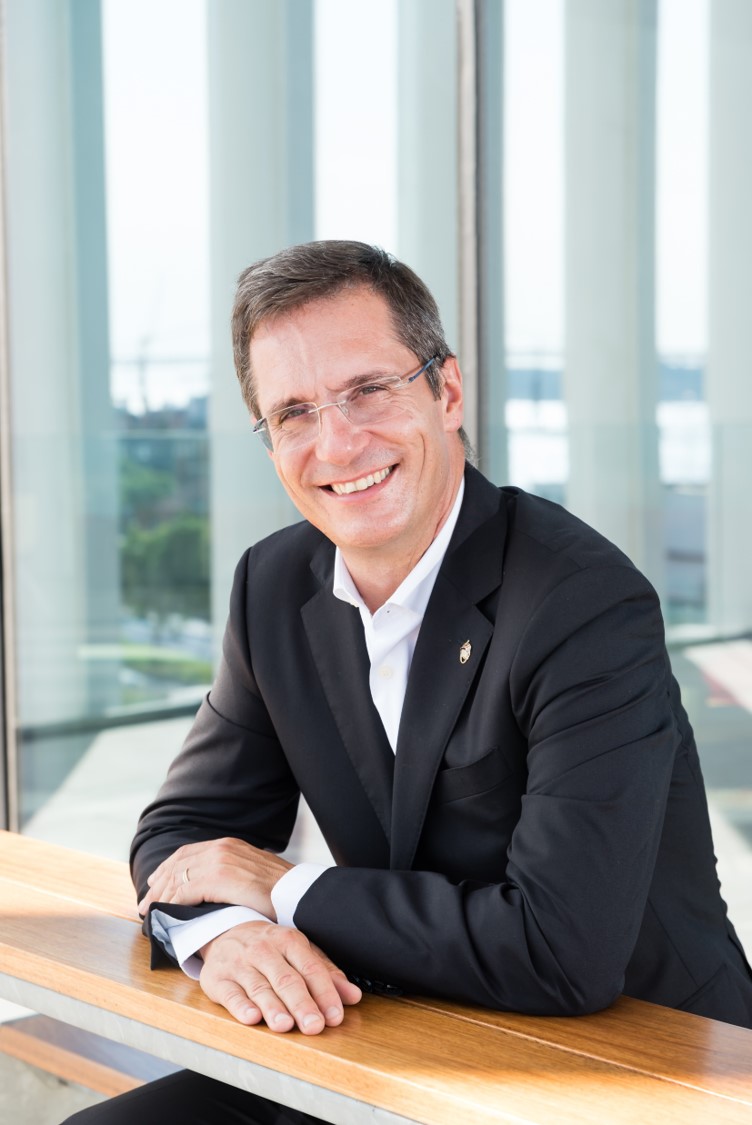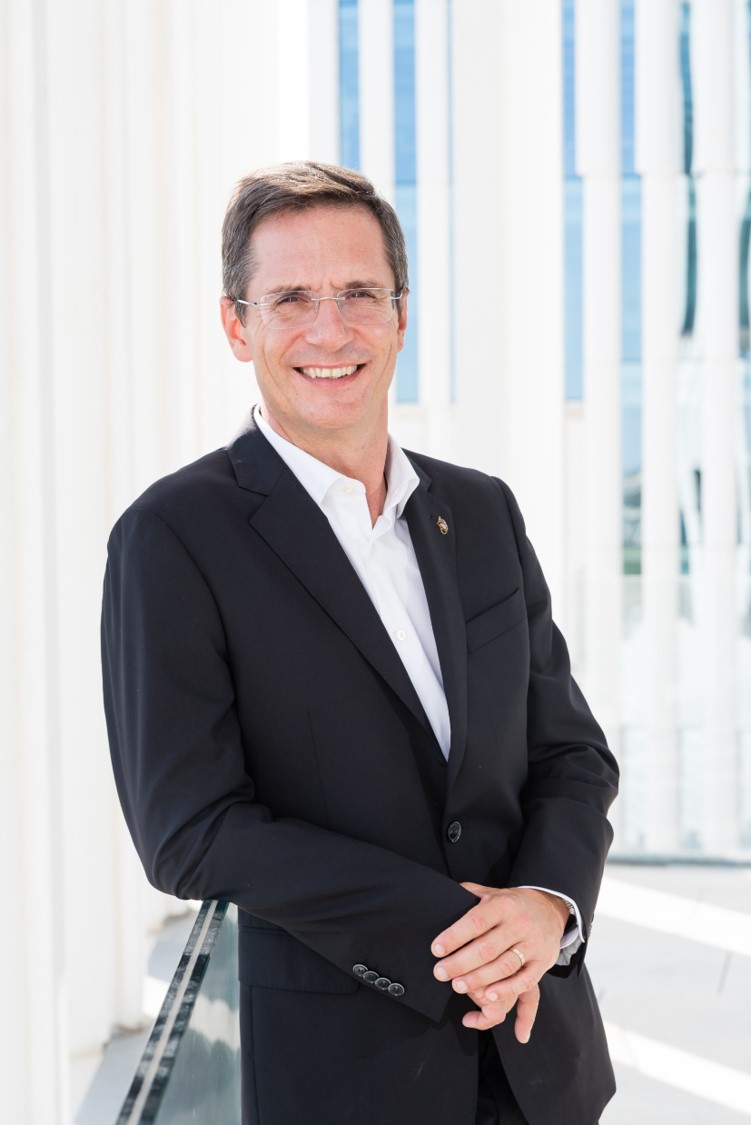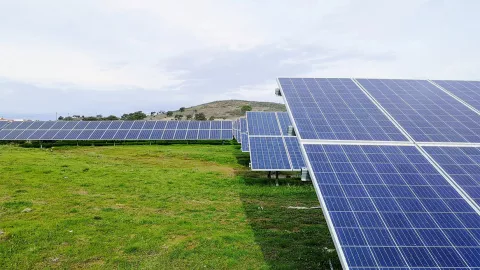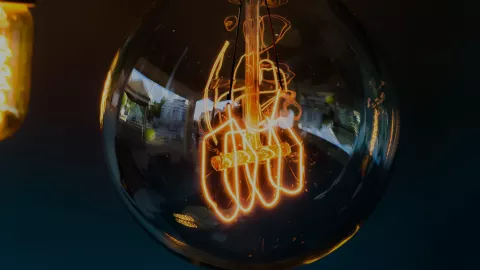
“We have to change the way we consume energy”
António Coutinho, CEO at EDP Innovation
In order to achieve carbon neutrality, it is not enough to produce energy from renewable sources it is also necessary to increase electrification. In this interview, the administrator responsible for energy transition at EDP Comercial highlights the crucial role of the client in order to achieve the 2050 goals and the important part that the state can play in the dinamization of the process.
What does it mean to be energy efficient?
When we think about energy efficiency, most of the time we think about consuming little energy, when what we should think is consuming less energy to do the same thing. One thing is not necessarily the other. We may be increasing energy consumption globally, but we may also be consuming less per unit produced. This is a very important aspect, because greater efficiency would not be to not consume anything, but also not produce anything.
What is the importance of electrification in this process?
Electricity today accounts for only 22% of the total energy we consume. Which means that if all the electricity we produced was renewable, that would only represent a 22% decarbonization. In order to achieve 100% decarbonization, that is, to replace fossil energy consumption with renewable energy, we must greatly increase the degree of electrification of our economy. So the figures that exist indicate that in 2050, in order to have almost 100% carbon neutrality in Europe, we would need to electrify about 60 to 70% of our energy consumption. It is only after electrifying that we can completely replace fossil fuels. It is also important to note that in the last 30 years this increase has only been 4%. From 2020 to 2050 we will need an increase of almost 40%.
What is the role of the clients in this change?
The customers have a key role here. If the costumers do not change the way they consume energy, if there is no electrification, it will be impossible to achieve carbon neutrality. And it's impressive to see that the customer issue is a bit out of these discussions. Today, we have technology to make the electrification of customer consumption, but technology is only the first step. The customers are an important part of the decision. This means that we have to engage the customers and be able to design, in a relatively rapid way, business models that are sufficiently attractive to them.

What is EDP doing to engage the customer in its decisions?
There is a very concrete example that we are very proud of. Those who best know what is good for the customers are the customers themselves, this is something that everyone more or less says. But how is this done? Nowadays all our products are co-created by customers. We have sessions where we give them a problem and we work on a solution to this problem with them. Customers give us clues and we fit the pieces. Then we organize another session and ask them if that was what they were looking for. But we are not happy with this, because after we have this product designed, we will sell it even before we have developed it. This allows us to see if customers in general really want that product. It also allows us to understand what commercial success rates are; if the channel itself feels comfortable selling the product; if the channel takes a long time to sell the product; if the value proposition to the customer is evident to everyone. Over the course of these two years we have been able to improve the relationship with our customers, understand it and develop products that they want and need.
Returning to the topic of electrification, what has EDP done to speed up the process?
EDP is doing a lot in this respect. The first thing we have to be aware of is that no company will be able to solve this problem on its own. I would say that this humility works as a fortress, as a strong point, because in order to conquer the clients you need to orchestrate an ecosystem around them that allows you to give answers in a fast and innovative way. And we are all few for the challenge. Cooperation is the secret to reach the customers more successfully.
In other words, will the secret cease to be the soul of the business?
Exactly, in this logic of partnership and cooperation, whoever works together the best will certainly be the winner. We are identifying companies that are at the cutting edge of solutions, entering their capital and keeping track of what they are doing to incorporate that knowledge quickly. For example, we have entered an Irish company that is a leader in the flexibility of consumption, which is already a component of the English and Irish market, but which does not yet exist in the Iberian Peninsula. In the future, this will be a key part of the sector, because of the penetration of renewable energy and decarbonization. But we still know very little about it. And the best way to know more is to be, for example, in a more advanced company in this field, which is a market leader.
Another way to participate in this is through ideas. EDP has had good ideas and these ideas often have market value. Save to Compete, for example, started out as a concept for implementing energy efficiency in large companies. It then was applied to SMEs. We developed this platform, and in the first year we increased our sales ten times and, in the second year, ten times our sales over the previous year. This data was so extraordinary that we decided that we would have to share it, because it will help speed up energy efficiency.
Do you think that the State has been paying attention to these issues? Has progress been made?
The state always plays a key role as regulatory authority . It is not enough to set goals. It is important, then, to find ways to meet these goals. For example, electric mobility, which is one of such ways to electrify our energy consumption. Portugal has always been among the first countries to understand that electric mobility would play an essential role in the future. In 2010, legislation was published and a pilot leadership process for this phase was created. We started off well, but today we already know much more about the subject and it probably makes sense to revert some parts of our model. And there is some difficulty in doing that.
We talk about what parts, for example?
To install a charging point you must have a license given by the municipality, by MOBI.E, among others. All this takes so long that we cannot serve customers as we would like. I am not saying that licensing and certification do not have to be done. But we need to think about how we can handle thousands of processes efficiently.
We have to trust the entities that make these processes and create a sense of accountability, that is, I have responsible technicians and these technicians have to be responsible for what they sign. We cannot have responsible technicians and, at the same time, have a whole process in which the state is co-responsible.
This is an important role of the state, which should be itself an expediting agent, within its powers, so that the speed we are imposing and which is necessary to solve a global problem can be matched to the effort that the entities themselves make.
Has the state a slower pace than companies?
The state has to be a driving force on this path, setting itself the example. And the state is a bit late there. Our buses are not electric and could be, our railway is not yet all electrified, it is only now that the boats will be electric.
A path is being taken, but it must be done more decisively. Note that it is not only a problem of the Portuguese State, but there are states that walk faster than others. China has announced very recently that in 2060 it will have carbon neutrality. China's challenge is far greater than the European challenge. China, in the end of 2019, had 400,000 fully electric buses; there are cities that no longer have other buses. In Europe, the number is 2,500. There is a long way to go.
As far as the pandemic situation we are currently experiencing is concerned, do you think we have gained a new consciousness?
I think that with the confinement, and it did not happen only in Portugal, we discovered the City. A city with clean air, no noise, comfortable, etc. And when you discover these things you don't want to go back. And the interesting thing was that this happened immediately after a collective awareness on the subject of climate change. The interesting thing about the pandemic was to have joined the awareness of some people with the experience of a new reality, a near-transversal experience of the future. These two factors feed themselves in a way that they become a requirement for governments. What we are seeing at the level of the European Commission is a continuous thought about how we can accelerate this process.
How do we change in 30 years, why has it taken us 200 years to get here?
It is a very big challenge. If we accelerate this in an unsustainable way, we will not be successful, and there will be tense social situations that can harm us in our way to achieve our goals. Coal must be dropped, but we must think about what is going to happen to miners and people who use coal, and find solutions. We will have to stop using gas, but we have to think about what to do to the entire gas infrastructure that is very important in the energy transition itself. We cannot want to run so hard, because we can stumble on our own feet. This is knowing how to manage the temptation to respond to a pressure that will be increasing.
Do you sincerely believe that it is possible to achieve the carbon neutrality goal in 2050?
I am cautiously optimistic. We have technology; and we know that technology always surprises us. And, therefore, we must rely on the transversal effort that is being done in the world to respond to this challenge. But all this involves very high levels of investment. In order to have a notion, only in the electric sector we need to invest 100 billion annually by 2050. In 2019, 60 billion was invested. This means that governments must create a framework that is favorable to these investments. A framework where, after the investments are made, the government doesn't take something away because it needs to address the deficit. This removes the trust of the agents, among others. As much as companies want to invest, their shareholders or the capital market do not allow them to make these investments. This is a part of the big challenge that needs to be addressed.




